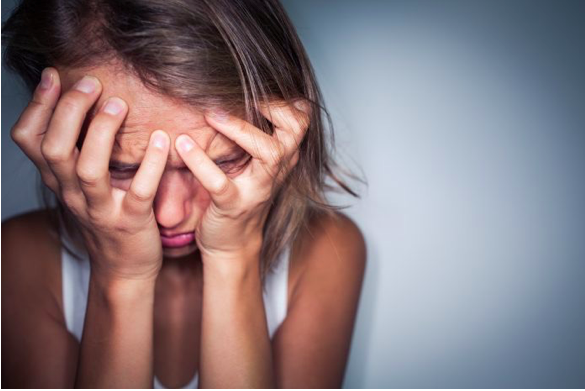What is Anxiety?
Anxiety in itself is not a major issue. In fact, it is a normal emotional reaction to certain situations. A student can be a bit anxious when going to a new school for the first time. They can be a bit anxious just before an examination. Parents can be anxious while waiting for the result of the test that will tell them the sex of their child. All these are normal emotional responses that can be classified as anxiety.
Anxiety (maybe a slightly more intense version) also arises when one faces some form of danger. This anxiety facilitates the release of adrenalin which can help the individual deal with the situation. This again is healthy anxiety.
However, there is something called anxiety disorder which can be a mental health issue. Anxiety becomes classified as a disorder when it becomes a regular occurrence with no readily visible explanation. This is a state of persistent anxiety for no just reason.
What Are the Signs of Anxiety Disorder?
Anxiety disorder will usually show some of the following signs which we can regard as its symptoms:
- Sleeplessness.
- Sustained, increased heart rate and palpitations.
- Restlessness, being in a constantly agitated state.
- Being in a constantly worried state.
- Absent-mindedness.
- Panic attack etc.
You can find other symptoms here. While most of these symptoms are quite common and may not in themselves indicate anything serious, if a number of them persist for a period without any plausible explanation, then it may be a case of anxiety disorder.
What Are the Implications of Untreated Anxiety Disorder?
If a case of anxiety disorder is not properly treated, there are complications that could arise from it. We will look at a few of these complications.
Depression
This is one emotional state that is usually associated with this disorder. Depression can be a condition on its own but it is also commonly found together with anxiety disorder.
Substance Abuse
As one would expect, this continued state of agitation is a perfect recipe for substance abuse. This abuse which leads to addiction is usually a product of the patient’s attempt to curb the symptoms. Substances that will usually be abused include; alcohol, marijuana, nicotine and other controlled substances.
Interestingly, a substance like alcohol only appears to provide relief. This relief is very temporary as continued use of alcohol actually increases anxiety. This is because of the biological changes it brings about in the body.
Compromised Immune System
Stress is not good for anyone because it puts a lot of strain on the different systems in the body, one of which is the immune system. Anxiety disorder can cause a lot of stress which can, in turn, lead to the patient’s immune system being compromised, opening up the body to the risk of diseases getting a hold.
Suicide
This is the end point of most mental health issues. According to suicide.org, up to 90% of the cases of suicide we have are traceable to mental health patients. Read about it here: http://www.suicide.org/suicide-causes.html. Since we have already established that anxiety disorder is a mental health case, if it is left untreated, it can end in suicide.
Treating Anxiety Disorder
Treating anxiety disorder usually requires a combination of approaches which include: behavioral therapy, psychotherapy, and medication. As a standard practice, it is first necessary to identify the underlying factor responsible for the disorder. For example, the disorder may be as a result of depression, alcohol abuse or some other reason.
If the underlying causative factor is not identified and treated, any intervention prescribed will be superficial and not effective.
It is best to have a professional deal with this disorder, however, it is possible for an individual to self-treat. A few ways to go about this include some of the following steps:
- Learning stress management.
- Practicing meditation and other relaxation techniques.
- Seeking out a supportive structure.
- Improving their thought lives by learning positive thinking.
The above are just a few ways an individual can attempt to take charge of the anxiety issues. It is, however, possible that the individual may not be able to carry these out. In such a case, an anxiety counselor will have to be sought out.
A professional will be able to take the patient through a journey that will help identify the root cause of the problem so that a lasting solution can be proffered. This is a very treatable condition. Sadly, of the approximately 40 million Americans that are said to be suffering from this condition, only about 36.9% of them ever receive treatment.
This leaves about 63.1% untreated, meaning they could end up going off the deep end. If you or someone you know is suffering from this condition, take control today and seek help for yourself or that individual.






